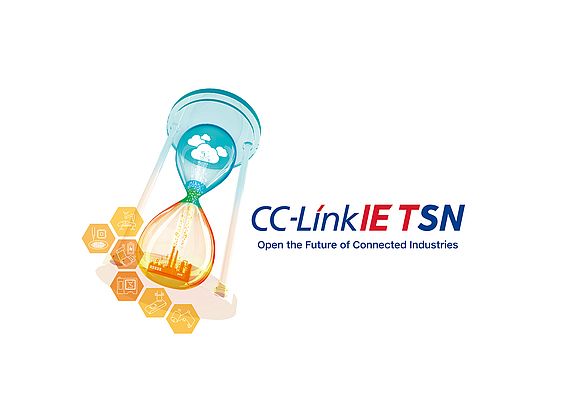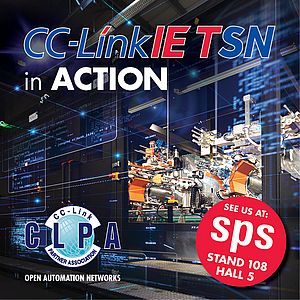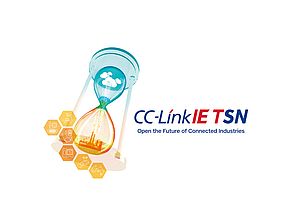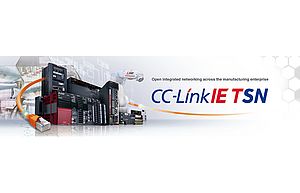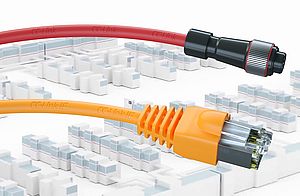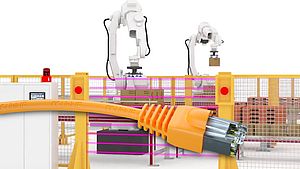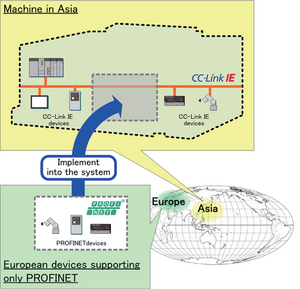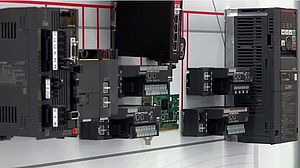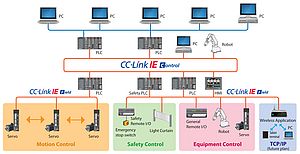4 ways TSN can improve your business
Time-Sensitive Networking (TSN) is a unique, innovative technology that can help companies implement futureproof Industry 4.0 applications by considerably improving industrial Ethernet standards. By means of key additions to these standards, TSN supports determinism and network convergence – two essential elements of highly competitive, connected industries of the future.
John Browett, General Manager at CLPA Europe, discusses some of the most crucial improvements that TSN can deliver within an enterprise.
The automation marketplace is a symbiosis of end users, who specify projects to machine builders, who in turn look for vendors who can offer products and solutions that meet these specifications. TSN is well placed to deliver benefits to all market participants.
Let’s rewind – what is TSN?
TSN is a technology that sits at Layer 2 - Data Link of the OSI model to expand the capabilities of current Ethernet networks. More precisely, this innovation is described by the IEEE 802.1 set of Ethernet sub-standards and focuses on delivering determinism and convergence of multiple data traffic streams on one network. Two particularly important TSN sub-standards that provide such abilities are IEEE 802.1 AS and IEEE 802.1 Qbv.
The first ensures that all devices on a network are synchronised, providing the basis for determinism. Once a shared sense of time is in place across a network, IEEE 802.1 Qbv defines ‘time aware shapers’. These define specific ‘time slots’ that are assigned to different types of network traffic, which are prioritised according to the information carried. As a result, different types of data traffic can all travel across the network in a predictable way, further supporting deterministic communications. Ultimately, this method supports convergence of multiple traffic types and consequently the ability to combine the operational technology (OT) and information technology (IT) worlds.
What does this mean for end users, machine builders and automation vendors?
Simpler network architectures/machine designs
The capabilities discussed allow end users to reduce the number of networks required for their operations, as they can merge different data traffic streams together while ensuring determinism. This ability, in turn, allows machine builders to pass on cost reductions, as less equipment and engineering work is required to design, configure and install network systems. In addition, timescales for complete projects are reduced.
Greater process transparency and better management
The convergence supported by TSN strengthens data transfer across the enterprise, allowing end users to have greater process transparency. In effect, transparency is all about being able to extract more data from industrial processes and analyse it to gather meaningful information that helps to better understand factory floor operations. This insight can then be leveraged to optimise performance, productivity, efficiency and end product quality.
More productivity
By supporting the creation of single networks that transfer all types of traffic, it is easier to troubleshoot and identify any potential issues. Therefore, downtime associated with maintenance or repair activities can be reduced, while overall uptime can be increased. As a result, the entire end user’s manufacturing system can become more productive.
Better integration of OT and IT systems
By converging multiple types of data, TSN offers a key way to merge OT and IT. This convergence is at the heart of data-driven smart manufacturing, as it promotes innovation and collaboration by sharing and utilizing actionable information across the entire enterprise. Consequently, by embedding TSN capabilities within their products, vendors can deliver solutions with increased interoperability, along with the capability for device data to be visible across the enterprise via cloud connectivity.
Embrace TSN now
Companies interested in leveraging TSN to optimise their plants, machines or automation product offering can rely on CC-Link IE TSN. This is the first open industrial Ethernet to combine gigabit bandwidth with TSN capabilities to deliver a solution to simultaneously meet today’s and tomorrow’s application needs.
Device vendors can develop innovative compatible products and actively shape the future of automation by supporting this new technology. This is easy to do, as the ecosystem of development options available to vendors who want to offer CC-Link IE TSN certified products is broad and flexible. Moreover, compatible products and solutions from leading automation vendors, such as Mitsubishi Electric, are already available to end users worldwide.



